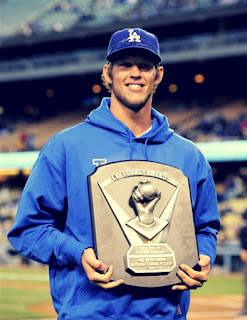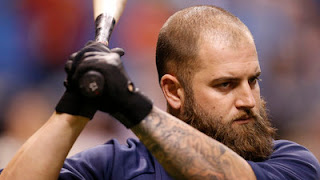The divisions arranged themselves like Russian dolls two weeks ago. The pretenders, having hung around mostly due to contender inconsistency, are finally out of runway. The Blue Jays and Orioles, in whatever order, have separated themselves from the rest of the league. It will take a three-game meltdown on one of their parts and a surge by Detroit to upset the current arrangement.
So the only team with a post-season question is NY. Would they rather play the even-yeared Giants or the perennially-contending Cards. (This assumes, by the way, that the Metroplitans don't gack it up in the final three days of the season. It would take a whitewashing by the incompetent Phillies, accompanied by a trio of St. Louis wins and at least one win for San Fran, and then a tie-breaker loss, to fritter away their current edge. They are rated as 96.5% likely to take the Wild Card.)
On the surface, the Mets would much prefer to avoid the three-armed Giant monster of Bumgarner/Cueto/Samardzija to anything the Cardinals could throw at them. Then again, since their win totals are so close, the Redbirds must be compensating in some other way, like hitting 220 homers as a team without a single 30-home run slugger. (BTW, no one has ever done that before.)
The Mets are 4-3 against the Giants and 3-3 versus St. Louis. The Cards have prospered on the road, so playing at Citi Field is a wash. The Giants and Mets have little to offer in home-road splits, so the home field issue feels pretty moot.
What isn't moot is what a dumpster fire Bruce Bochy's team has been of late, 27-42 since the All-Star break. In addition, the Giants and Cardinals have mostly feasted on bad teams, with St. Louis 11 under against .500+ teams and San Francisco 9 under. The Mets have played good opponents to a draw, but aren't on the plus side only because the Nationals and their ultra-motivated second-baseman have owned them.
It's all an effort to find the two-percent edge and that effort doesn't appear to have come to much. If you bleed orange and blue, well, first of all, see a doctor. But then take your pick. Would you prefer to face a team that's scuffling or avoid a pitching ace. Either way a victory brings you to the ornery and talent-rich Cubs.











